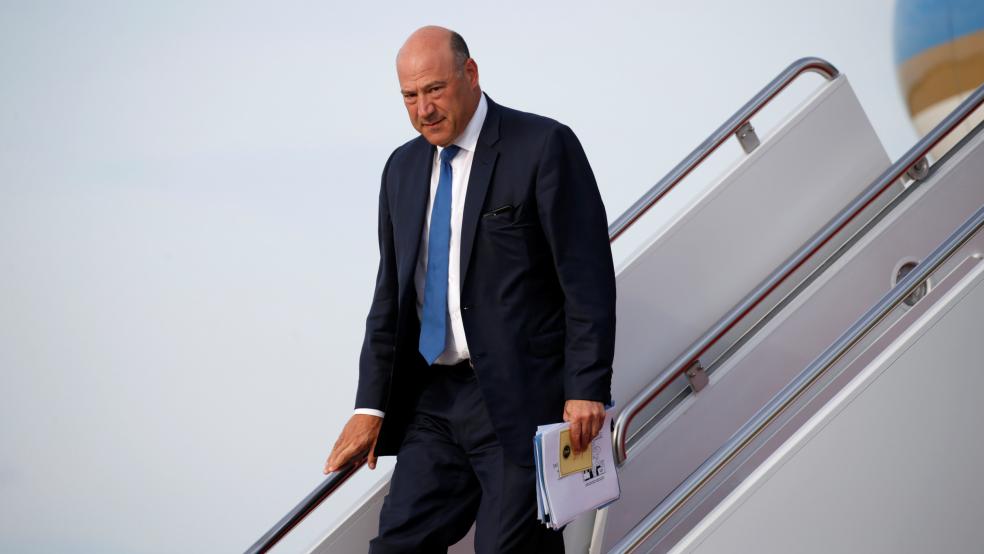In laying out his principles for tax reform at a recent speech in Missouri, President Trump called for a tax code that is “simple, fair, and easy to understand.” The president correctly noted that meeting this objective will require “getting rid of the loopholes and complexity that primarily benefit the wealthiest Americans and special interests.”
That the myriad special-interest provisions in our Byzantine tax code need to be weeded out is beyond dispute. The problem, however, is that these “weeds” have become seemingly impervious to any attempts to kill them.
President Obama sang a similar tune when he laid out his ideas for corporate tax reform in 2013, noting that “Our current tax code is broken and too complex, with businesses that play by the rules paying a 35 percent tax rate while many corporations that can hire hundreds of lawyers pay virtually no taxes at all.” Ditto his predecessor, George W. Bush, who during his 2004 Republican nomination acceptance speech called the tax code a “complicated mess, filled with special interest loopholes.” Indeed, Bush promised to “lead a bipartisan effort to reform and simplify the federal tax code.”
Yet here we are stuck with the same complicated mess.
Decrying the influence of special interests on tax policy (or any policy for that matter) makes for easy talking points. And for a couple of decades now, the electorate has oscillated between parties, throwing one party out for rigging the system and then later, throwing the other out for rigging the system for a different set of special interests.
While much of the blame can be laid at Congress’ feet, both Democratic and Republican administrations have identified the problem with special interest privilege and then proceeded to become part of it.
The Bush years were about the “ownership society.” This meant policies that systematically favored housing and housing-related fields. The coda on the Bush years was then, of course, a massive bailout of over 600 banks and financial institutions. Then came Obama, who followed a promise to put an end to special interest politics with the bailout of automakers and green energy firms.
Now we have a president who campaigned on the populist mantra of “draining the swamp,” but who promptly endorsed using taxpayer resources to privilege major corporations like Carrier and Foxconn under the guise of “helping workers.”
Never mind the overwhelming evidence that targeted subsidies such as these fail to deliver the sort of widespread benefits that their boosters claim. Moreover, they can entail enormous opportunity costs for the working taxpayers who ultimately hand out the subsidy. The state of Wisconsin, for example, could have cut its corporate income tax rate—one of the highest in the nation—by 21 percent had it not chosen to give a $3 billion subsidy to Foxconn.
Scant few details have emerged about the Trump tax plan so far, though the president has stated a desire to see the federal corporate tax rate lowered to 15 percent from its current 35 percent rate. When the administration provides the details, it should include a demand that Congress embark on a bipartisan effort to target as many special-interest tax provisions as possible. Only by aggressively closing a broad range of special interest giveaways will Congress be able to significantly reduce tax rates.
The reality is that targeted tax breaks are often no more than subsidies in disguise. And regardless of what the K-Street crowd claims, federal business subsidies are simply bad economic policy: economic instability, lower long-run economic growth, cronyism and corruption are just a few of the ugly byproducts.
Subsidizing particular firms or industries also violates the bedrock American principle of equality under the law by giving advantages to privileged interests at the expense of other businesses and taxpayers. The federal government’s proper role in the economy should be that of a neutral referee, with intervention limited to facilitating the free exchange of goods and services.
Trump says that tax reform is part of a broader plan to “de-rig” the system. If recent history is a guide, and if special interests are able to dictate the terms of the debate on Capitol Hill, an attempt to de-rig the tax code will turn into a re-rigging. That means this administration had better be prepared to lead on the matter, which will require a lot more effort than simply giving campaign-style speeches to friendly crowds.
Matthew Mitchell is the director of, and Tad DeHaven a research analyst for, the libertarian Mercatus Center at George Mason University’s Study of American Capitalism.





